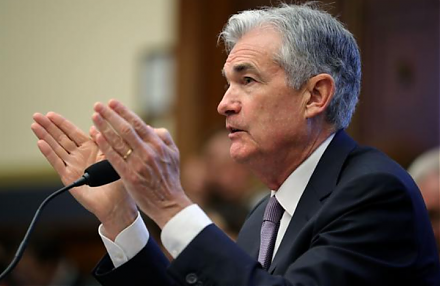

2019-04-05 08:25:00 Fri ET
stock market gold oil stock return s&p 500 asset market stabilization asset price fluctuations stocks bonds currencies commodities funds term spreads credit spreads fair value spreads asset investments
Warren Buffett places his $58 billion stock bets on Apple, American Express, and Goldman Sachs. Berkshire Hathaway owns $18 billion equity stakes in American Express and Goldman Sachs, and both stocks sharply trail S&P500 in recent years. Meanwhile, Berkshire Hathaway owns another $40 billion in Apple. Buffett focuses not on Apple revenue growth from quarter to quarter, but rather the broad network of hundreds of millions of iPhone and iPad users worldwide. Goldman experiences transient stock market undervaluation due to its notorious involvement in the 1MBD Malaysian bond scandal (which may result in fines up to several billions of dollars). Also, American Express executes several strategic partnerships in e-commerce payments, and continues to face fierce competition from the other major credit card bellwethers Visa and MasterCard.
Buffett views this unique collection of U.S. stocks as a set of public companies that Berkshire Hathaway partly owns in the long run. Without excessive levels of debt, these stocks earn 15%-20% steady profits on net tangible equity capital that Buffett requires to run the stock investment business. Berkshire Hathaway experiences a healthy fundamental increase in the market value of common stock investments from $170 billion to almost $173 billion from 2017-2018 to early-2019.
If any of our AYA Analytica financial health memos (FHM), blog posts, ebooks, newsletters, and notifications etc, or any other form of online content curation, involves potential copyright concerns, please feel free to contact us at service@ayafintech.network so that we can remove relevant content in response to any such request within a reasonable time frame.
2018-12-19 17:41:00 Wednesday ET

Tencent Music Entertainment debuts its IPO on NYSE to strike a chord with stock market investors. Tencent Music goes public and marks the biggest IPO by a m
2025-10-31 12:26:00 Friday ET

With respect to wider weight loss treatment and obesity treatment, the global market for GLP-1 medications now grows substantially to benefit more than 1 bi
2019-01-27 12:39:00 Sunday ET

British Prime Minister Theresa May faces her landslide defeat in the parliamentary vote 432-to-202 against her Brexit deal. British Parliament rejects the M
2018-02-27 09:35:00 Tuesday ET

Fed's new chairman Jerome Powell testifies before Congress for the first time. He vows to prevent price instability for U.S. consumers, firms, and finan
2017-09-13 10:35:00 Wednesday ET

CNBC reports the Top 5 features of Apple's iPhone X. This new product release can be the rising tide that lifts all boats in Apple's upstream value
2017-09-19 05:34:00 Tuesday ET

Facebook, Twitter, and Google executives head before the Senate Judiciary Committee to explain the scope of Russian interference in the U.S. presidential el